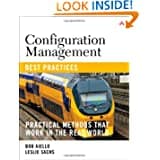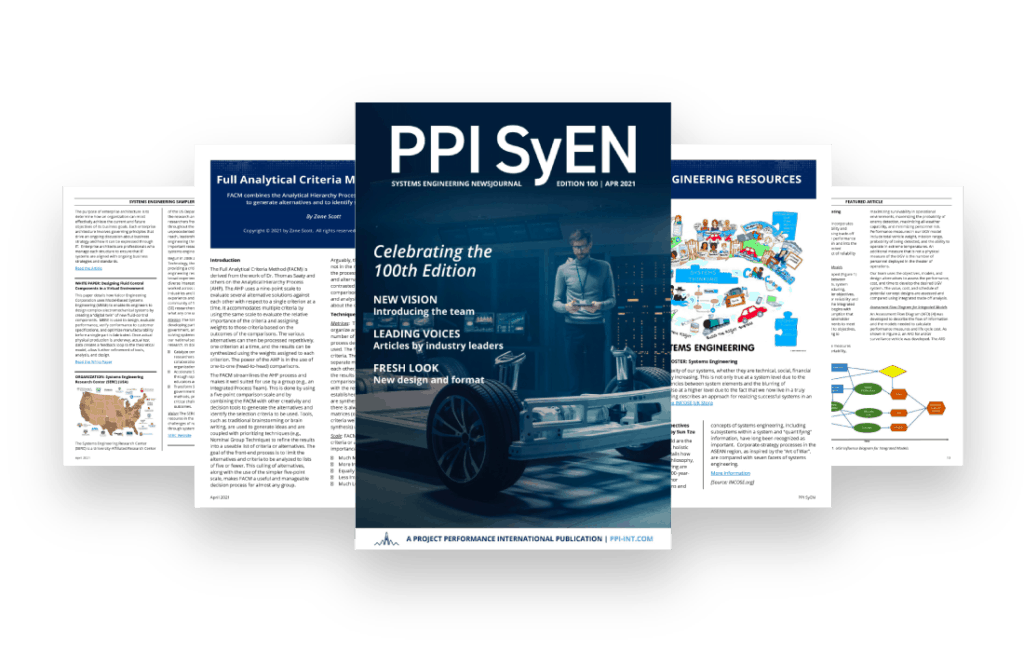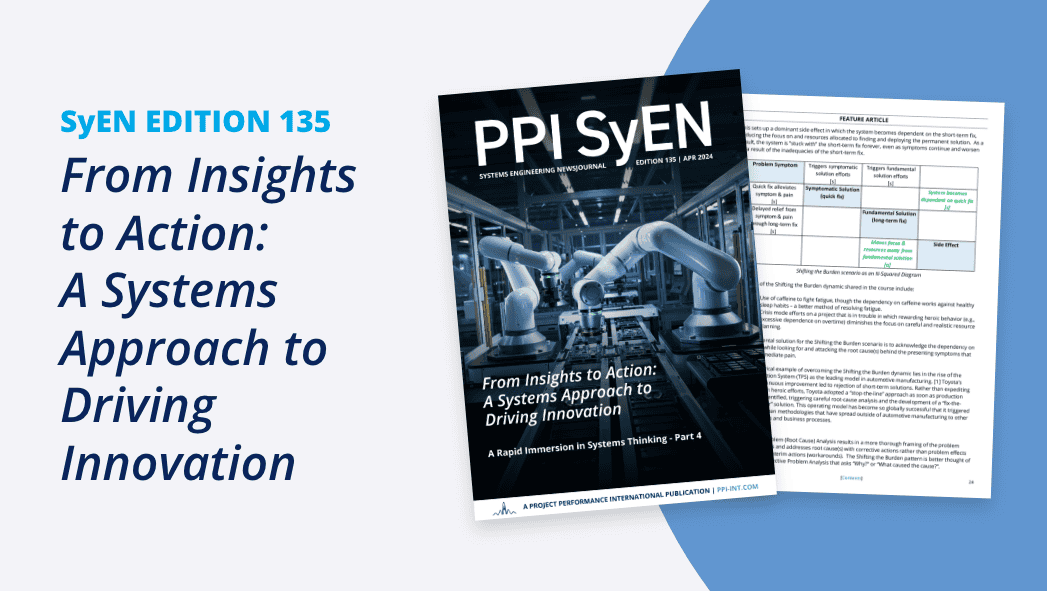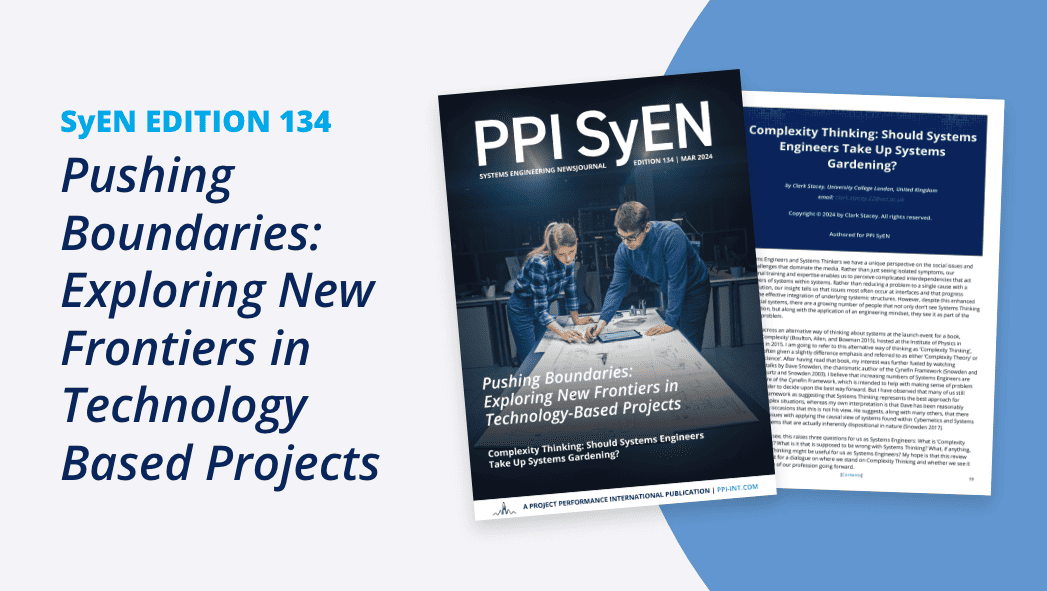WHAT’S INSIDE:
A Quotation to Open On
Feature Article: How to Wrestle a Crocodile
Systems Engineering News
- Upcoming Submission Deadlines and Themes for INSIGHT
- INCOSE Event Calendar
- Systems Engineering Centre Aims to Create Future Leaders
- Chesapeake Chapter of INCOSE Proudly Present: Finding Amelia – A Challenge in Systems Engineering
- Model Based Systems Engineering for Experienced Systems Engineers
- Systems Engineering Latest Issue
- Academic, Industry and Government Leaders Explore Systems Thinking
- Lockheed Martin Receives DoD Award for Systems Engineering Excellence
- U.S. Army Honored for Exceptional Systems Engineering Practices with 2009 Top 5 DOD Systems Engineering Award
- International Conference on Industrial Engineering, Systems Engineering and Engineering Management for Sustainable Global Development – 1st Call for Papers and Participation
Featured Societies – TBD
INCOSE Technical Operations – Systems Engineering Standards Resource Center
Systems Engineering Software Tools News
- Siemens PLM Delivers on Its Vision of the End-to-End Design/Build Lifecycle
- SODIUS Adds Debug to its DXL Editor Providing a World-Class IDE to DOORS/DXL Developers
- Atego’s Artisan Studio Achieves ‘Ready for IBM Rational Software’ Validation
- Cognition Corporation Announces Cockpit Version 6.0
Systems Engineering Books, Reports, Articles and Papers
- Configuration Management Best Practices: Practical Methods that Work in the Real World
- Memories
- A Few More Words on Aging Baby Boomers and the Coming Mobility Gap
- Is It Time To Revamp Systems Engineering?
Conferences and Meetings
Education and Academia
- One Postdoc at Singapore University of Technology and Design
- National Centers for Systems of Systems Engineering (NCSOSE)
- Position in Software Engineering & IT Security, Fraunhofer ISST, Dortmund (Germany)
Some Systems Engineering-Relevant Websites
Standards and Guides
- TBD
A Definition to Close on
PPI News
PPI Events
A Quotation to Open On
TBD
Feature Article
How to Wrestle a Crocodile
By Alwyn Smit
A recent Requirements Engineering conference left me pondering the niggling question: Why are so many projects still struggling or failing when so much research has been done on the causes of project failure, and whole conferences are devoted to what has been identified as one of the prime causes of project failure? Like all other engineering problems, this one does not exist in isolation either, and looking at the larger context quickly confirms that the typical project environment is quite complex with many variables and lots of human involvement. Fixing requirements engineering problems will help, but only if it is done in balance with the rest of the Systems Engineering and Project Management activities forming part of this complex interaction called a project. That prompted me to reach for a book on my top shelf, one that I bought a while back at an INCOSE conference: Visualizing Project Management by Forsberg, Mooz and Cotterman. Paging through the Introduction, my eye caught these quotes that I diligently underlined the first time I read it and it reminded me of the lesson I learnt reading it the first time:
- “Widely varying project results would lead one to conclude – quite correctly – that project success is too often dependant on the specific team.” I have seen this happening in my own environment where some teams are apparently more successful at project execution than others – perhaps they are the ones that learned from their mistakes.
- “Project reality is such a complex organism that personal experience alone can result in biased and flawed views” This supported my own perception that projects have become increasing complex to the point that no one person can control them, bringing with it the communication challenges within large project teams.
- “A major factor critical to project success is the availability of an effective and intuitive management process – one the group will quickly buy into and build their team upon”. One thing I am convinced of despite the tongue-in-cheek tearoom discussions on which is more important: Systems Engineering or Project Management, the answer to this “effective and intuitive management process” the authors refer to lies in the symbiotic relationship between SE and PM where the result is much bigger than the sum of the parts.
The authors then go on to provide a visual depiction of a process model that is an intimate integration of Project Management and Systems Engineering based on these five essentials:
- Organizational Commitment
- Communication
- Teamwork
- Project Cycle
- Management Elements.
Chapter three introduces these five essentials in a “Wheel and Axle” model that left me with a healthy respect for the complexity of the typical project environment, yet the apparent simplicity of dealing with this complexity.
Organisational Commitment
Organisational commitment is the foundation for project success. Without a culture supporting the team sport of SE and PM, authority and accompanying accountability of team members, and infrastructure like tools and training, the isolated cases of project excellence will only occur based on individual excellence despite the lack or organisational support. Regular project reviews to monitor progress and identify shortcomings and, more importantly, acting on these findings to correct deviations from the project plan and improving the processes are essential. If the project goals are clear and the team understands that they will be held accountable, they will very quickly begin to manage themselves to ensure that the project goals are met.
Communication
Communication amongst team members is not only based on the written or spoken word, but also includes graphical languages like the Unified Modelling Language, charts and diagrams using tools like Microsoft Visio and PowerPoint. It is however natural language that is most often misunderstood, due to different meanings in the context of domain specific business or technical fields. The importance of having a common vocabulary is considered so high by the authors, that they produced another book, Communicating Project Management, containing project management and system engineering terms.
Besides the dangers of miscommunication due to misunderstanding of the intended meaning of a term, it is critically important that team members regularly communicate about the status of the work in comparison to the plan as well as the technical detail of interfaces between work packages executed by different team members.
Teamwork
Teamwork is often defined as working together to achieve a common goal. The authors however define the scope of teamwork in the project environment to include the following five fundamentals:
- Common goals
- Acknowledged interdependency, trust and mutual respect
- A common code of conduct
- Shared rewards
- Team spirit and energy.
The image that most vividly illustrates this teamwork for me is the one of a symphony orchestra making good music from a common score under the leadership of the conductor. One false instrument or a few misplayed notes can ruin the experience for everybody, orchestra (team) and audience (stakeholders) alike.
Project Cycle
The project cycle is defined as a sequence of phases through which the project passes in pursuit of the project’s opportunity. It is also often referred to as the life cycle of the project and represents the system solution maturation. There are typically three aspects to this cycle, namely Business, Budget and Technical.
The business aspect contains the tactics to accomplish the business goal or mission of the project. The initial project feasibility analysis, project planning and control, stakeholder and subcontractor management and the evaluation of project success are all part of the business aspect.
The budget aspect contains the tactics for securing and managing the funding for the project. Cost estimation, the financial management approach and cash flow management are all part of the budget aspect.
The technical aspect is all about systems engineering. It creates the concepts, requirements and architecture of the system solution and is documented in baseline specifications and other artefacts. It also includes the verification and validation of the design solution. The technical aspect is often represented by a variety of development models, including the waterfall, spiral and V-models.
Management Elements
The management elements include ten categories of situational techniques and tools that can be applied throughout the project cycle to manage the business, budget and technical aspects that are not naturally compatible and synergistic. These elements include:
- Requirements
- Organising
- Project Team
- Planning
- Opportunity and Risk Management
- Project Control
- Visibility
- Status
- Corrective Action
- Leadership.
How to Wrestle a Crocodile
Coming back to the apparent unrelated topic of this article, the practice of crocodile wrestling is something that is not unlike the execution of a complex project. If you follow the guidelines of “best practise” given by the experts, you can minimise the risk involved in this crazy activity. Get it wrong and you will suffer the consequences! Interesting to note that these so-called experts are often also missing body parts – a sombre reminder that they have walked the walk and they have the scars to prove it. Even the experts, when they get complacent, pay dearly for underestimating this prehistoric beast.
At the end of the day, project management and systems engineering are about managing your risk of not delivering maximum value to your stakeholders. Every project is unique in its specific context and challenges, but if you follow the guidelines your chances of coming through it all with all your limbs is not that bad at all. Perhaps we still see so many failed projects because we keep forgetting this and we fail to learn from our mistakes?
References:
- Kevin Forsberg, Hal Mooz, Howard Cotterman, Visualizing Project Management – 3rd edition, John Wiley & Sons, Inc., 2005
- Andrew Burk, How to Wrestle a Crocodile, http://www.ehow.com/how_5065084_wrestle-crocodile.html
About Alwyn Smit
Alwyn is a systems engineer with the Council for Scientific and Industrial Research in South Africa. His career of 27 years includes more than 20 years in project management and systems engineering on defence related projects. He is a long standing member of INCOSE and a Certified Systems Engineering Professional. He is also a past president of the INCOSE SA Chapter and the editor of SyEN.
Systems Engineering News
Upcoming Submission Deadlines and Themes for INSIGHT
INSIGHT is the newsletter of International Council on Systems Engineering. It is published four times per year (January, April, July, October). INSIGHT features status and information about INCOSE’s technical work, local chapters, and committees and boards. Additionally, related events, editorials, book reviews, trends, and how-to-do articles that are pertinent to the many aspects of a systems engineer’s job are also included, as space permits.
Upcoming submission deadlines and themes for INSIGHT
INCOSE Event Calendar
| 21st Annual International Symposium | Jun 20 – 23, 2011 |
| CSER2011 – Ninth Annual Conference on Systems Engineering Research | Apr 14 – 16, 2011 |
| Sixth International Conference on Systems Engineering sponsored by INCOSE-IL/ILTAM | Mar 08 – 09, 2011 |
| International Workshop 2011 (IW 2011) | Jan 29 – Feb 01, 2011 |
| German Chapter Annual Systems Engineering Conference (TdSE2010) | Nov 10 – 12, 2010 |
| INCOSE UK Annual Systems Engineering Conference (ASEC 2010) | Nov 08 – 10, 2010 |
Systems Engineering Centre Aims to Create Future Leaders
A multi-disciplinary centre intended to advance systems engineering in the UK, is being created at Imperial College, London. Although the Centre for Systems Engineering will focus mainly on the construction sector, it will encompass the full spectrum of systems approaches from data networks in mechanical and electrical engineering, through to low-carbon energy technologies.
Chesapeake Chapter of INCOSE Proudly Present: Finding Amelia – A Challenge in Systems Engineering
 Date: Saturday November 20th 2010
Date: Saturday November 20th 2010
Speaker: Ric Gillespie
Time: 8 AM to 3 PM
Cost: $43 (includes breakfast and lunch)
Location: The Engineers Club at the Garrett-Jacobs Mansion
11 West Mount Vernon Place • Baltimore, MD 21201
The hard-cover first edition of Gillespie’s book is now out of print and a limited number of copies remain. Signed copies normally sell for $100. By special arrangement with the Engineer’s Club for this event only, signed hard-cover copies of “Finding Amelia – the true story of the Earhart disappearance” are available for pre-order at $35.
Model Based Systems Engineering for Experienced Systems Engineers
The Huntsville Regional Chapter of INCOSE, in cooperation with Teledyne Brown Engineering and Integrated Thought Corporation presents a full day workshop on Introduction to Model Based Systems Engineering for Experienced Systems Engineers
Saturday Nov. 20, 2010, Teledyne Brown Cafeteria, 300 Sparkman Drive, Huntsville, Al
Systems Engineering Latest Issue
Copyright © 2010 Wiley Periodicals, Inc., A Wiley Company
Volume 13, Issue 4 Page 311 – 412
The latest issue of Systems Engineering is available on Wiley Online Library
Academic, Industry and Government Leaders Explore Systems Thinking
More than 300 guests attended the two-day MIT SDM Conference on Systems Thinking for Contemporary Challenges to hear experts from MIT, industry and government discuss how they use systems thinking to solve some of the world’s most pressing and complex problems.
Sponsored by Global Project Design, Werfen Group/Instrumentation Laboratory, John Deere, Merck, MITRE and United Technologies Research Center (UTRC), the conference addressed Large Complex Systems; Sustainable Systems; Service Systems, and Health Care Systems.
Lockheed Martin Receives DoD Award for Systems Engineering Excellence
The Department of Defense and the National Defense Industrial Association (NDIA) have selected Lockheed Martin (NYSE: LMT) to receive one of the Top 5 DoD Program Awards given annually for excellence in systems engineering.
Lockheed Martin’s Defense Readiness Reporting System-Army (DRRS-A) program was honored for its illustrated engineering excellence, rapid development approaches, risk management and comprehensive reviews. The Lockheed Martin team successfully transitioned the stand-alone solution to a robust web-enabled software suite through user-developer collaboration.
U.S. Army Honored for Exceptional Systems Engineering Practices with 2009 Top 5 DOD Systems Engineering Award
At the recent 13th Annual National Defense Industrial Association (NDIA) Systems Engineering Conference Award Luncheon in San Diego, the Project Manager, Night Vision/Reconnaissance, Surveillance, and Target Acquisition (PM NV/RSTA) was awarded the 2009 Top 5 DoD Systems Engineering Award for the U.S. Army’s Base Expeditionary Targeting and Surveillance System-Combined (BETSS-C) Program.
International Conference on Industrial Engineering, Systems Engineering and Engineering Management for Sustainable Global Development – 1st Call for Papers and Participation
September 21-23, 2011, Spier Hotel and Conference Centre, Western Cape, South Africa
Featured Society – TBD
TBD
More information
INCOSE Technical Operations
Systems Engineering Standards Resource Center
http://www.incose.org/practice/standards/
The International Council on Systems Engineering Standards Technical Committee (STC) is one of the most active communities within INCOSE. Its members are working to advance and harmonize systems engineering standards used worldwide.
Current SE Standards
ANSI/GEIA EIA-632, Processes for Engineering a System, 01 Sept 2003
Available for purchase from the Government Electronics and Information Technology Association (GEIA)
Under revision by GEIA G-47 to align with ISO/IEC 15288; early stage of development (next meeting January 2005).
EIA/IS 731.1, Systems Engineering Capability Model, Electronic Industries Alliance (Interim Standard), 01 Aug 2002
Available for purchase from the Government Electronics and Information Technology Association (GEIA)
IEEE 1220-1998, IEEE Standard for Application and Management of the Systems Engineering Process, Institute of Electrical and Electronics Engineers, 01 May 1998
Available for purchase from the Government Electronics and Information Technology Association (GEIA)
Revision to align IEEE 1220 with ISO/IEC 15288 and provide a lower level of detail than 15288 is underway and due out December 2004. After that it will be fast tracked as an ISO standard.
ECSS-E-10 Space Engineering
Systems Engineering Part 1B: Requirements and process, 18 Nov 2004
Systems Engineering Part 6A: Functional and technical specifications, 09 Jan 2004
Systems Engineering Part 7A: Product data exchange, 25 August 2004
Available for download from European Cooperation for Space Standardization
ISO/IEC 15288: 2002 – System Life Cycle Processes
Available for purchase from the International Organization for Standardization (ISO)
JTC1/SC7/WG7
Harmonization of ISO/IEC 15288 and ISO/IEC 12207:1995 & 2 Addendum 2002, 2004 (software life cycle processes) is under development. This is nearing WD.1 (working draft 1) stage.
ISO/IEC 19760:2003 – A Guide for the Application of ISO/IEC 15288
Available for purchase from the International Organization for Standardization (ISO)
ISO/IEC 15504: 2004 – Information Technology – Process Assessment
JTC1/SC7/WG10
Available for purchase from the International Organization for Standardization (ISO)
Part 1: Concepts and vocabulary (2004)
Part 2: Performing an assessment (2003)
Part 3: Guidance on performing an assessment (2004)
Part 4: Guidance on use for process improvement and process capability determination (2004)
Part 5: An assessment model and indicator guidance (1999)
ISO 10303-AP233, Industrial automation systems and integration — Part 233: Systems engineering data representation
Additional information available on the AP-233 website
Currently in working draft form
Other Standards
ANSI/AIAA G-043-1992, Guide for the Preparation of Operational Concept Documents
Being upgraded now by INCOSE and AIAA partnership
IEEE 1471, 2000: IEEE Recommended Practice for Architectural Description of Software-Intensive Systems
Available for purchase from IEEE
Capability Maturity Model Integration (CMMI)
All you need to know is available from the Carnegie Mellon Software Engineering Institute’s CMMI website
Merger of SW-CMM (from SEI) and SECM (EIA/IS 731)
Released in July 2000 (Combined SE/SW model)
Later release with IPD elements (version 1.01), Nov 2000
Might be developed into full standard by EIA
Unified Modeling Language (UML)
Available for download from the Object Modeling Group (OMG)
To be issued as ISO standard
Version 1.5 is released; version 2.0 is in finalization
Systems Modeling Language (SysML)
Latest draft is available for download from the SysML Partners website
The INCOSE Modeling & Tools Technical Committee is working with the OMG and SysML Partners to create an extension to UML version 2.0 to support systems engineering
Systems Engineering Software Tools News
Siemens PLM Delivers on Its Vision of the End-to-End Design/Build Lifecycle
By Dick Slansky
At the recent Siemens Analyst Event in Boston (September 21st), Siemens PLM provided the analyst community with a look at how far it has come in the past few years, where it is now, and what is in store for the future. This included new markets for PLM, future directions for the company in R&D, innovation, and new technologies, and realization of the company’s end-to-end virtual lifecycle, from concept and design to factory floor operations. Siemens Industrial Automation (IA), Siemens PLM’s parent business unit, along with Industrial Automation Systems (AS), are integrating product and production engineering by integrating PLM and Siemens industrial software across the entire product lifecycle, from design to automation. Siemens IA now offers a complete solution set from product design through manufacturing and operations on both the plant and factory floor.
SODIUS Adds Debug to its DXL Editor Providing a World-Class IDE to DOORS/DXL Developers
SODIUS announced the availability of a new version of its DXL Editor, offering debugging features to help Rational® DOORS® developers optimize their code and save time on their projects.
Atego’s Artisan Studio Achieves ‘Ready for IBM Rational Software’ Validation
Atego, claiming to be the leading independent supplier of industrial-grade, collaborative development tools for engineering complex, mission- and safety-critical architectures, systems, software and hardware, has announced that Artisan Studio has achieved formal validation for its DOORS Synchronizer as Ready for IBM Rational software. The Ready for IBM Rational software validation program provides a method for IBM Business Partners to assure customers of the safety and interoperability of their application development and lifecycle integrations to the Rational Software Delivery Platform, based on compliance to specific integration criteria. Artisan Studio DOORS Synchronizer provides full, bi-directional integration between Artisan Studio’s award-winning UML/SysML model-driven embedded development environment and the IBM Rational DOORS family of requirements definition and management solutions.
Cognition Corporation Announces Cockpit Version 6.0
Cognition Corporation is taking product development one step further by adding systems engineering functions to support real time Web 2.0 / Enterprise 2.0 collaboration by product teams. The release of Cognition Cockpit 6.0 includes significant enhancements to bring PDM/PLM functions directly into Cockpit for real time, remote, simultaneous users to see instant traces and instant updates on all project information.
Systems Engineering Books, Reports, Articles and Papers
Configuration Management Best Practices: Practical Methods that Work in the Real World
Robert Aiello (Author), Leslie Sachs (Author)
Publisher: Addison-Wesley Professional; 1 edition (August 20, 2010)
ISBN-10: 0321685865, ISBN-13: 978-0321685865
 Product Description
Product Description
Successfully Implement High-Value Configuration Management Processes in Any Development Environment.
As IT systems have grown increasingly complex and mission-critical, effective configuration management (CM) has become critical to an organization’s success. Using CM best practices, IT professionals can systematically manage change, avoiding unexpected problems introduced by changes to hardware, software, or networks. Now, today’s best CM practices have been gathered in one indispensable resource showing you how to implement them throughout any agile or traditional development organization.
Configuration Management Best Practices is practical, easy to understand and apply, and fully reflects the day-to-day realities faced by practitioners. Bob Aiello and Leslie Sachs thoroughly address all six “pillars” of CM: source code management, build engineering, environment configuration, change control, release engineering, and deployment. They demonstrate how to implement CM in ways that support software and systems development, meet compliance rules such as SOX and SAS-70, anticipate emerging standards such as IEEE/ISO 12207, and integrate with modern frameworks such as ITIL, COBIT, and CMMI. Coverage includes.
- Using CM to meet business objectives, contractual requirements, and compliance rules Enhancing quality and productivity through lean processes and “just-in-time” process improvement.
- Getting off to a good start in organizations without effective CM.
- Implementing a Core CM Best Practices Framework that supports the entire development lifecycle.
- Mastering the “people” side of CM: rightsizing processes, overcoming resistance, and understanding workplace psychology
- Architecting applications to take full advantage of CM best practices.
- Establishing effective IT controls and compliance.
- Managing tradeoffs and costs and avoiding expensive pitfalls.
Configuration Management Best Practices is the essential resource for everyone concerned with CM: from CTOs and CIOs to development, QA, and project managers and software engineers to analysts, testers, and compliance professionals.
Memories
by Russell L. Ackoff
Publisher: Triarchy Press
Publication Date: 21 October 2010
Print ISBN: 978-0-9565379-7-3
 “Russ was an incisive, lifelong critic of the modern organizational form. He saw its limitations and argued for radical redesign. He was an advocate for major re-visioning and processes of change that started with helping people see what they truly valued and where they truly wanted to get – and then working backwards to see what it would take to get there.“
“Russ was an incisive, lifelong critic of the modern organizational form. He saw its limitations and argued for radical redesign. He was an advocate for major re-visioning and processes of change that started with helping people see what they truly valued and where they truly wanted to get – and then working backwards to see what it would take to get there.“
Peter Senge, from his Foreword to Memories
A Few More Words on Aging Baby Boomers and the Coming Mobility Gap
By Joseph F. Coughlin
My commentary on the transportation needs of an aging America (How to Avoid a Surge of Shut-Ins) appeared October 20, 2010 in the New York Times Opinion section Room for Debate. I argue that the convergence of a more active, more numerous, and more demanding older population with a national transportation system that suffers from both structural and operational limits is leading the country to a coming mobility gap. By 2021, the baby boomers will begin turning 75. While 75 in 2021 is likely to be far younger than 75 a decade ago or today, physical changes associated with natural aging and a transportation system unchanged will present significant barriers to a population who wishes to remain connected, productive and engaged. See previous post Older Driver Debate: Safety, Personal Mobility & the Policy Road Ahead. In this post I add a few additional points and links to resources that do not appear in the New York Times commentary.
Is It Time To Revamp Systems Engineering?
By Graham Warwick, Guy Norris
Washington, Fort Worth
Former NASA Administrator Michael Griffin believes high-profile program failures in aerospace and defense could be avoided by engineering elegant system designs. But he cannot quite define “elegance in design.”
Paul Eremenko, a program manager with the U.S. Defense Advanced Research Projects Agency (Darpa), believes problems could be avoided by measuring and minimizing the complexity of system designs. But he cannot yet measure “complexity.”
They both believe the systems engineering processes that have served the aerospace and defense community since pre-Apollo days are no longer adequate for the large and complex systems industry is now developing. But they have different ideas on how to solve the problem.
Conferences and Meetings
CMMI 10th Annual Technology Conference and User Group
November 15-18, 2010
Hyatt Regency Tech Center – Denver, Colorado, USA
Third IEEE International workshop UML and Formal Methods
Held in conjunction with the 12th International Conference on Formal Engineering Methods, ICFEM 2010
November 16th, 2010, Shanghai, China
Introduction to Model Based Systems Engineering for Experienced Systems Engineers ![]()
Nov. 20, 2010, Teledyne Brown Cafeteria, 300 Sparkman Drive, Huntsville, Al
INCOSE Sweden – Fall Seminar 2010: Lean & Agile Systems Engineering Seminar ![]()
November 23, 2010, KTH Campus, KTHB (library), Osquars backe 31, Stockholm, Sweden
5th International Forum on Engineering Education (IFEE2010) & European SDPROMO II Conference
November 23 – 25, 2010, Sharjah-Dubai, UAE, United Arab Emirates
1st International Chemical and Environmental Engineering Conference 2010
November 26 – 28, 2010, Kuala Lumpur, Malaysia
2010 International Conference on Computer and Software Modeling – (ICCSM 2010)
December 4-5, 2010, Manila, Philippines
22nd International Conference Software & Systems Engineering and their Applications (ICSSEA 2010)
December 7-9, 2010, Paris, France
National Institute of Technology – National Systems Conference 2010
December 10-12, 2010, National Institute Technology Karnataka, Surathkal, India
ICISE 2010: International Conference on Intelligent Systems Engineering
December 18, 2010, Bangkok, Thailand
ICECSE 2011 “International Conference on Electrical, Computer and Systems Engineering”
January 25-27, 2011, Dubai, United Arab Emirates
INCOSE International Workshop 2011 (IW 2011) ![]()
January 29 – February 01, 2011, Hyatt Regency Phoenix, Phoenix, AZ, USA
Second International Conference on Exploring Services Sciences (IESS 1.1)
February 16-17-18, 2011, Geneva, Switzerland
The Sixth International Conference on Systems Engineering in Israel ![]()
March 8-9 2011, Herzlia, Israel
2011 International Conference on Systems Engineering and Modeling (ICSEM 2011) ![]()
11 to 13 March 2011, Shanghai, Shanghai, China
Second ACM/SPEC International Conference on Performance Engineering (ICPE 2011)
March 14-16, 2011 Karlsruhe, Germany
Design, Automation & Test in Europe
March 14-18, 2011, Grenoble, France
26th Symposium On Applied Computing
March 21 – 25, 2011, Tunghai University, TaiChung, Taiwan
Requirements Engineering Track – 4th Edition
part of the 26th ACM Symposium on Applied Computing
March 21 – 25, 2011, Tunghai University, TaiChung, Taiwan
ICST Workshop on Requirements and Validation, Verification & Testing (ReVVerT 2011)
Co-located with the 4th International Conference on Software Testing, Verification and Validation (ICST 2011)
March 21-25, 2011 (one day), Berlin, Germany
7th Workshop on Advances in Model Based Testing (A-MOST 2011) ![]()
Co-located with the 4th International Conference on Software Testing, Verification and Validation (ICST 2011)
March 21, 2011 – Berlin, Germany
IWEI 2011 – The International Working Conference on Enterprise Interoperability
March 22-24, 2011, Stockholm, Sweden
MoBE-RTES 2011 – 2nd IEEE Workshop on Model-based Engineering for Real-Time Embedded Systems
Mar 28, 2011
REFSQ 2011 – 17th International Working Conference on Requirements Engineering: Foundation for Software Quality
March 28-30, 2011, Essen, Germany
MBT 2011 – Seventh Workshop on Model-Based Testing
April 2-3, 2011, Saarbrϋken, Germany
Satellite workshop of ETAPS 2011
IEEE International Systems Conference
April 4-7, 2011, Montreal, Quebec, Canada
Symposium on Theory of Modeling and Simulation (DEVS/TMS’11) ![]()
April 4-9 2011, Boston, MA, USA
1st International Workshop on Model-driven Approaches for Simulation Engineering ![]()
Held under the aegis of the Symposium on Theory of Modeling and Simulation, part of the SCS SpringSim 2011 conference.
April 4-9, 2011, Boston, MA (USA)
International Symposium on Ambient Intelligence ![]()
6-8th April, 2011, University of Salamanca, Salamanca, Spain
Workshop on the Reliability of Intelligent Environments (WORIE ’11) ![]()
within the International Symposium on Ambient Intelligence
6th-10th April, 2011, University of Salamanca, Salamanca, Spain
CSER 2011 – Conference on Systems Engineering Research
April 14-16 2011, Redondo Beach Crown Plaza, Redondo Beach, CA, USA
Risk-Based Approaches to Major Decisions (Risk ’11)
May 13 – 14, 2011, Falmouth, Cornwall, United Kingdom
SPICE 2011 – The 11th International SPICE Conference Process Improvement and Capability dEtermination
30 May – 1 June 2011, Dublin, Ireland
Seventh European Conference on Modelling Foundations and Applications
6-9th of June, 2011, University of Birmingham, Birmingham, UK
10th TTCN‑3 User Conference
June 7-9, 2011, Bled, Slovenia
4th Symposium on Resilience Engineering
June 8-10, 2011, Sophia Antipolis, France
FM 2011: 17th International Symposium on Formal Methods
June 20 – 24, 2011, Lero, Limerick, Ireland
The 32nd International Conference on Application and Theory of Petri Nets and Concurrency (PETRI NETS 2011)
11th International Conference on Application of Concurrency to System Design (ACSD 2011)
June 20-24, 2011 Kanazawa Cultural Hall, Kanazawa, Japan
INES 2011 – 15th IEEE International Conference on Intelligent Engineering Systems 2011
June 23-25, 2011, Poprad, High Tatras, Slovakia
SoSE 2011 – 2011 6th International Conference on System of Systems Engineering (SoSE)
Jun 27 – 30, 2011, Albuquerque, New Mexico, U.S.A
ICMT2011 – International Conference on Model Transformation
Theory and Practice of Model Transformations ![]()
Co-located with TOOLS Europe 2011
27 June – 01 July 2011 – Zurich, Switzerland
19th IEEE International Requirements Engineering Conference
August 29 – September 2, 2011, Trento, Italy
International Conference on Industrial Engineering, Systems Engineering and Engineering Management for Sustainable Global Development ![]()
September 21-23, 2011, Spier Hotel and Conference Centre, Western Cape, South Africa
Second Annual IIBA Conference ![]()
October 2011, More details TBA
Education and Academia
One Postdoc at Singapore University of Technology and Design
Highly motivated applicants are being sought to work on developing model checking techniques or applying model checking techniques to real-world problems. The postdoc will work with department of Information System Technology and Design, Singapore University of Technology and Design and collaborate with the software engineering team at National University of Singapore.
National Centers for Systems of Systems Engineering (NCSOSE)
The National Centers for Systems of Systems Engineering (NCSOSE) is a university research center for Old Dominion University established to draw together academia, government, and industrial organizations to resolve problems, develop technologies, and direct research concerning major issues in the design, analysis, and integration of complex systems of systems. NCSOSE was born out of a recognized need to effectively develop, coordinate, and integrate research and applications to engineer increasingly complex systems that must function as integrated systems of systems.
NCSOSE’s primary objective is to advance the body of knowledge and state-of-the art relating to engineering complex system of systems. NCSOSE supports the development of practical solutions and directs applied research that addresses contemporary system of systems engineering problems; provides high-quality information resources for those who make decisions, influence policy, and are charged with integration of complex systems of systems; and provides training and education in systems of systems engineering. NCSOSE frequently works in partnership with other research organizations and higher education institutions to enhance the quality of research in systems of systems engineering by promoting the interchange of academic research and knowledge.
Position in Software Engineering & IT Security, Fraunhofer ISST, Dortmund (Germany)
Researcher position to be filled as soon as possible. The positions is part of a Fraunhofer Attract research group on the topic: “Architectures for Auditable Business Process Execution (APEX): Monitoring, Control, and Compliance in the Insurance Domain” which is directed by Prof. Dr. Jan Jürjens. Goal of the project is the development of concepts and solutions for business processes and their execution in the context of service-oriented IT architectures. The project goal in particular includes the compliance with relevant regulatory documents regarding Coporate Governance and IT security (such as Solvency II).
Some Systems Engineering-Relevant Websites
http://www.incose.org/educationcareers/pdf/INCOSE_LISTofUS_Based_SE_Programs.pdf
INCOSE List of US Based SE-Centric and Domain Centric Programs
http://ackoffcenter.blogs.com/ackoff_center_weblog
The Ackoff Center Weblog is our entrée into the world of blogs! We seek to provide a forum where systems thinkers can interact and occasionally comment on/discuss issues affecting them and their organizations. The Ackoff Center Weblog will also provide an opportunity for you to keep up with the latest research in the field and to share your own experiences.
In July 2000, the School of Engineering and Applied Science of the University of Pennsylvania announced the creation of the Ackoff Collaboratory for Advancement of the Systems Approach (ACASA). Named for Dr. Russell Ackoff, Emeritus Anheuser-Busch Professor of the Wharton School, the center operates as a think tank in the vanguard of systems approaches.
Standards and Guides
More information
A Definition to Close on
TBD
PPI News
TBD
PPI Events (see www.ppi-int.com)
Systems Engineering Public 5-Day Courses (2010)
{Julie to plug in}
Requirements Analysis and Specification Writing Public Courses (2010)
{ Julie to plug in}
Software Engineering Public 5-Day Courses (2010)
{ Julie to plug in}
OCD/CONOPS Public Courses (2010)
{ Julie to plug in}
Cognitive Systems Engineering Courses (2010)
{ Julie to plug in}
PPI Upcoming Participation in Professional Conferences
{ Julie to plug in}
Kind regards from the SyEN team:
Robert Halligan, Managing Editor, email: rhalligan@ppi-int.com
Alwyn Smit, Editor, email: asmit@ppi-int.com
Luke Simpson, Production, email: lsimpson@ppi-int.com
Project Performance International
2 Parkgate Drive, Ringwood, Vic 3004 Australia
Tel: +61 3 9876 7345
Fax: +61 3 9876 2664
Tel Brasil:
Tel UK:
Tel USA:
Web: www.ppi-int.com
Email: contact@ppi-int.com
Copyright 2009 Project Performance (Australia) Pty Ltd, trading as Project Performance International
Tell us what you think of SyEN: email to contact@ppi-int.com
If you do not wish to receive a copy monthly of SyEN in future, please reply to this e-mail with “Remove” in the subject line. All removals are acknowledged; you may wish to contact PPI if acknowledgement is not received within 7 days.




